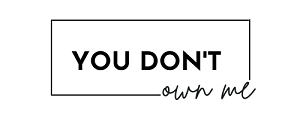
How can someone protect themself from domestic abuse? Is a question that seems to be cropping up more and more frequently.
And my answer to this is simple.
How can an individual protect themself from someone they believe loves them and cares about them?
How can they protect themselves from showing love, empathy and compassion towards another human being they believe has their best interests at heart?
The truth is, our human instinct and nature is to love and hopefully, in return, be loved.
We can educate, we can advocate we can share knowledge and experiences of domestic abuse in order to raise awareness and understanding.
What we cannot do though, is tell an individual how to feel about someone (whether it’s their partner or family member) and we cannot tell an individual how to live their life.
When people ask, “how can someone protect themself from Domestic abuse?”
The sad irony is that for many people with lived experience, they believe the perpetrator IS their protector. Shielding them from anything and anyone that may try to harm their relationship.
The reality however, is that the perpetrator is their possessor.
Needing power and control – always.
Thinking about the questions we ask when we talk about domestic abuse, could in all honesty, be a game changer.
We need to stop putting the blame and onus on those who have or are being abused. Its easy to lay the blame at their door.
Because, that way, we don’t have to dig any deeper to find out that the truth is…
ALL of us can experience domestic abuse.
It isn’t an, “us versus them” scenario.
It isn’t a case of some of us having some sort of super power which prevents us from being abused.
Or giving us the right to think, “I’d never let that happen to me!”
Nobody can protect themselves from human nature.
But what we can do is try to show some kindness when we talk about domestic abuse.
Not judgement nor condemnation.
The more we show that side of ourselves, the more individuals can feel safe enough to open up and maybe talk.
Let’s stop asking questions that put blame and shame on the individual and instead put our own human nature to good use, showing compassion and support and say,
“I’m here and I’m listening.”
If this blog resonates with you or someone you know, visit my Resources Page for useful links and support.

 Cart is empty
Cart is empty